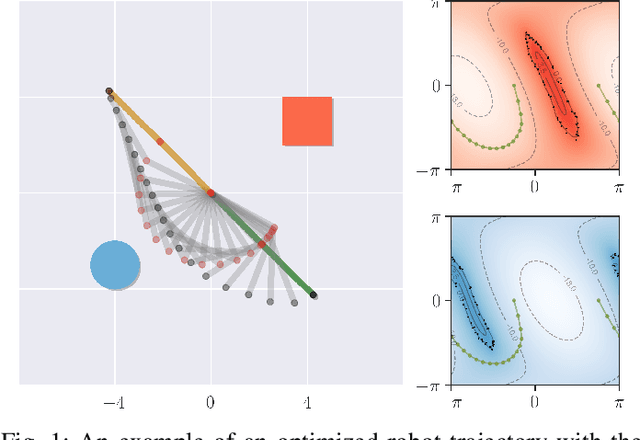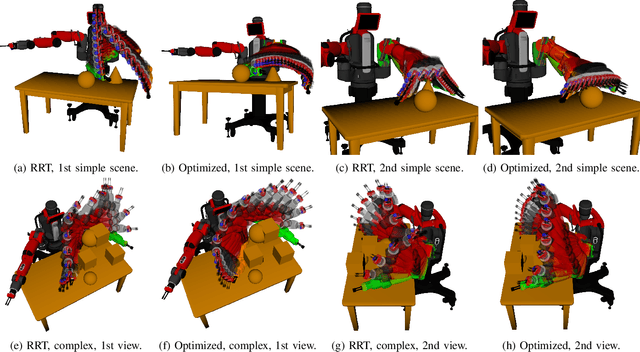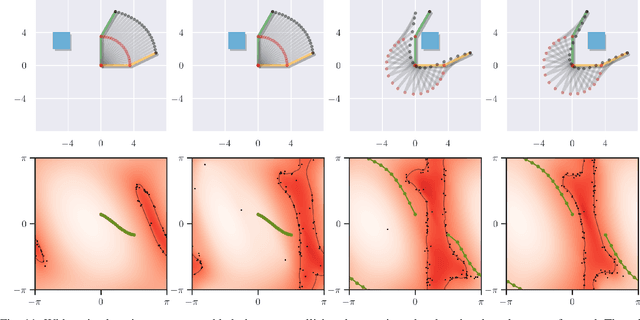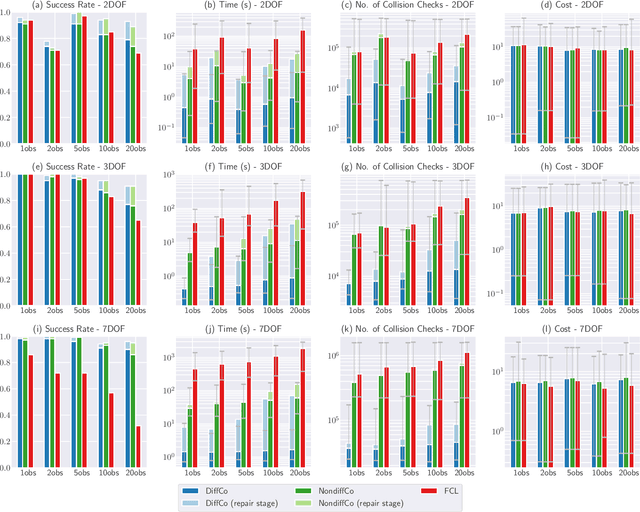DiffCo: Auto-Differentiable Proxy Collision Detection with Multi-class Labels for Safety-Aware Trajectory Optimization
Paper and Code
Feb 15, 2021



The objective of trajectory optimization algorithms is to achieve an optimal collision-free path between a start and goal state. In real-world scenarios where environments can be complex and non-homogeneous, a robot needs to be able to gauge whether a state will be in collision with various objects in order to meet some safety metrics. The collision detector should be computationally efficient and, ideally, analytically differentiable to facilitate stable and rapid gradient descent during optimization. However, methods today lack an elegant approach to detect collision differentiably, relying rather on numerical gradients that can be unstable. We present DiffCo, the first, fully auto-differentiable, non-parametric model for collision detection. Its non-parametric behavior allows one to compute collision boundaries on-the-fly and update them, requiring no pre-training and allowing it to update continuously in dynamic environments. It provides robust gradients for trajectory optimization via backpropagation and is often 10-100x faster to compute than its geometric counterparts. DiffCo also extends trivially to modeling different object collision classes for semantically informed trajectory optimization.
 Add to Chrome
Add to Chrome Add to Firefox
Add to Firefox Add to Edge
Add to Edge